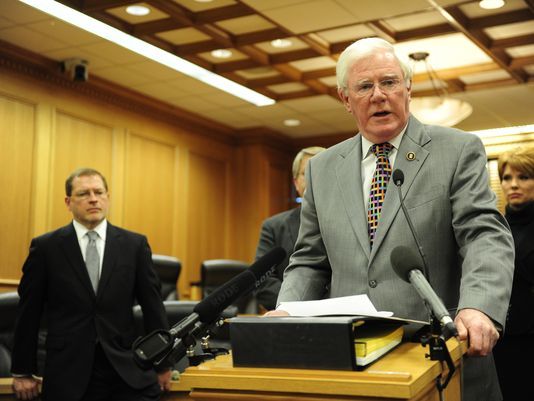Tennessee legislators are considering a bill to phase out the state’s 6 percent tax on dividend and other investment income. Tennessee already has no tax on wages or salaries.
The state’s tax on dividend and other income is known as the “Hall Income Tax” after State Senator Frank Hall, who led the fight for it in 1929.
Gov. Bill Haslam has publicly opposed the tax cut but more than half the state’s legislators from both sides of the political aisle have signed a pledge to do away with the tax. Retirees who depend on dividend and other investment income to pay their bills have long complained the tax is unfair because people who receive wages pay no state tax.
“Repeal of the Hall Income Tax is now supported by a majority of members in the 108th General Assembly including Lt. Governor Ramsey and Speaker Harwell. Any attempts to derail our incremental reductions defies the will of the majority of members and hurts seniors, those who certainly deserve tax relief,” said Andrew Ogles, Tennessee Director of Americans for Prosperity, in a statement.
Phased Out Over 6 Years
The Tennessee Chapter of Americans for Prosperity, Americans for Tax Reform, and the Beacon Center have been leading the charge against the tax by endorsing HB 1367, introduced by Tennessee House Finance, Ways and Means Committee Chairman Charles Sargent (R-Franklin). If the measure becomes law, it would reduce the tax rate one percentage point a year beginning January 1, 2015. The tax would be totally phased out over six years. However, the bill has a provision that would stop the yearly reduction in years when state revenue targets are not met.
In a letter to the state’s Finance, Ways and Means Committee, Americans for Tax Reform President Grover Norquist wrote, “As it stands, the Hall Tax represents a relatively small portion of Tennessee’s annual revenue, amounting to only 0.09% of state and local revenue in Tennessee. This small reduction in revenue, which would be gradually phased in, should also be compared to the growth of Tennessee’s budget in recent decades.
“From 1999 to 2009, Tennessee’s spending ballooned by more than 20% in excess of the rate of inflation and population growth. From 1989 to 2009, spending grew by 36% in excess. Phasing out the Hall Tax during a minimum of six years would provide ample time for state and local governments to prepare.”
Business Climate Boost
A recent Tax Foundation analysis concluded elimination of the tax would move Tennessee up from 15th to 11th on the Foundation’s business tax climate rankings.
However, the Left-leaning Institute on Taxation and Economic Policy last month issued a report that concluded, “Because the vast majority of investment income subject to the Hall Tax is collected by high-income taxpayers with large amounts of accumulated wealth, most Tennesseans would see little if any direct benefit from repealing the tax.” The ITEP report estimates 63 percent of the benefit would go to the wealthiest 5 percent of Tennesseans. Because state residents may deduct Hall Income Tax payments from their federal taxes, eliminating the tax would offset some of the savings by boosting the amount of income subject to federal tax, according to the study.




